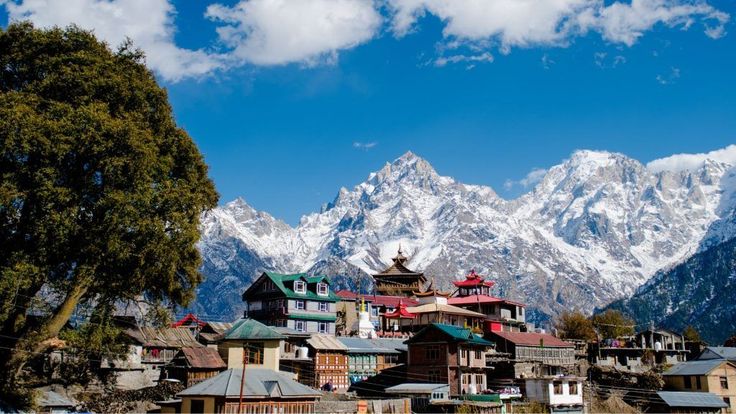Travel has always been more than just moving from one place to another. It’s about immersing yourself in new experiences, understanding different cultures, and discovering how lifestyles vary across the globe. From bustling metropolises to serene coastal towns, cities have a unique way of telling their own stories. Exploring them not only broadens horizons but also brings travelers closer to the traditions and innovations that define a destination.
Why Cities are Cultural Hubs
Cities around the world often act as melting pots of traditions, languages, and histories. They are places where art, architecture, and human connection thrive side by side. When you step into a new city, you encounter a rhythm that might be very different from your own, whether it’s the fast-paced lifestyle of New York, the historic grandeur of Rome, or the futuristic innovation of Dubai.
Traveling through global cities helps you appreciate contrasts: ancient temples standing beside modern skyscrapers, traditional cuisines being served in fine-dining settings, or local crafts being showcased in international markets.
The Role of Food in Cultural Exchange
One of the most exciting aspects of travel is food. Culinary experiences often serve as gateways into understanding local life. Cities like Bangkok, Istanbul, and Marrakech are famous for their street food, where travelers can taste authentic flavors cooked with centuries-old techniques. On the other hand, destinations like Paris and Tokyo offer world-class dining experiences that reflect sophistication and innovation.
Trying local dishes isn’t just about satisfying hunger, it’s about engaging with history and tradition. A single meal can teach you about trade routes, migration patterns, and even social rituals of the people who created it.
Architecture as a Reflection of Identity
Architecture is another vital element of travel. Cities express their identity through buildings, public spaces, and infrastructure. For example, Barcelona’s Sagrada Familia represents artistic devotion and cultural pride, while Dubai’s Burj Khalifa symbolizes ambition and modern progress.
When travelers walk through these streets, they are essentially reading a city’s autobiography, its challenges, achievements, and dreams, all carved into stone, glass, and steel.
Dubai: Where Tradition Meets Innovation
Dubai stands out as one of the most dynamic global destinations. It blends Emirati traditions with global influences, creating an environment that feels both familiar and exotic. Visitors can explore bustling souks filled with spices and textiles, then head to futuristic neighborhoods with luxury shopping malls and smart-city innovations.
As Dubai continues to attract travelers from all over the world, it also makes travel planning easier. For example, those planning a trip from West Africa can easily access services like Dubai visa for Ghana citizens, allowing them to experience the city’s unique mix of culture, business, and leisure. This accessibility ensures that Dubai remains an inclusive destination, welcoming people from different corners of the globe.
Festivals and Events: The Heartbeat of Cities
Every city has its own calendar of festivals that reflect the heartbeat of its community. Attending a local celebration often provides deeper cultural insights than any museum or monument.
-
In Rio de Janeiro, Carnival showcases Brazil’s vibrant music and dance traditions.
-
In Munich, Oktoberfest blends Bavarian heritage with global tourism.
-
In Dubai, the Dubai Shopping Festival and Global Village highlight international exchange in a modern context.
These events attract visitors worldwide, offering unforgettable experiences that showcase creativity, diversity, and human connection.
The Growing Popularity of Lifestyle Tourism
Travel is no longer limited to sightseeing, it’s increasingly about lifestyle experiences. Today’s travelers want to live like locals, even if it’s just for a few days. This might mean renting a bicycle in Amsterdam, practicing yoga on a beach in Bali, or enjoying coffee culture in Vienna.
Lifestyle tourism allows visitors to align their travels with personal interests, from wellness and culinary adventures to sports and art. By engaging in these activities, travelers don’t just observe a culture, they participate in it.
Connecting Africa and the Middle East through Travel
An interesting trend in recent years has been the growing travel connection between Africa and the Middle East. With improved air routes, easier documentation processes, and cultural familiarity, more travelers are crossing these regions than ever before. Dubai, in particular, has become a gateway city that connects African nations to global opportunities.
For example, East African travelers benefit from simplified processes such as Dubai visa for Uganda citizens, which makes it easier for Ugandan nationals to explore everything Dubai has to offer. This has encouraged cultural exchange, business opportunities, and leisure tourism between the two regions.
Travel as a Tool for Understanding
Ultimately, traveling to different cities reminds us of our shared humanity. It shows us that while cultures, languages, and lifestyles may differ, the desire for connection, creativity, and progress is universal. Cities are constantly evolving, and by experiencing them firsthand, travelers not only witness change but also become part of it.









